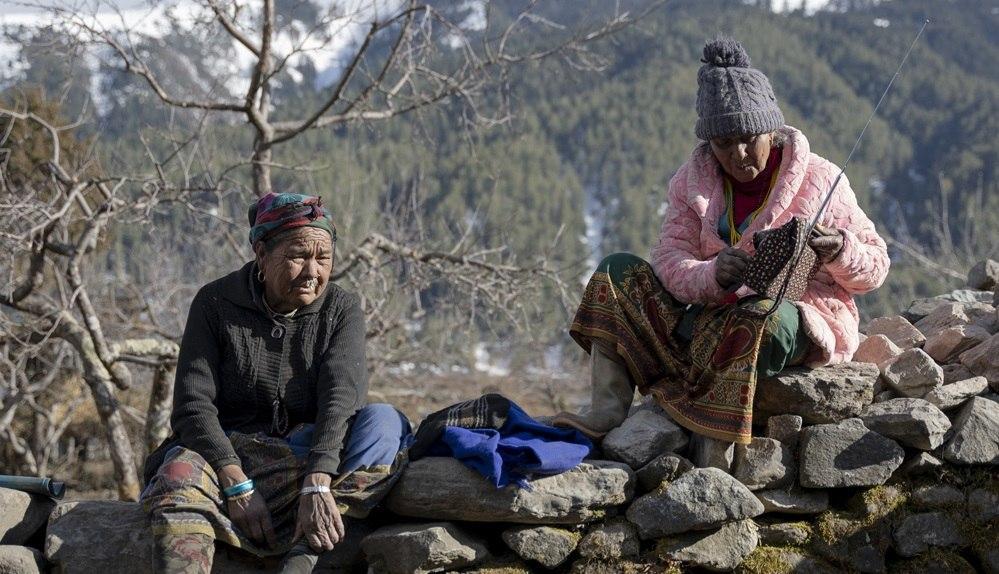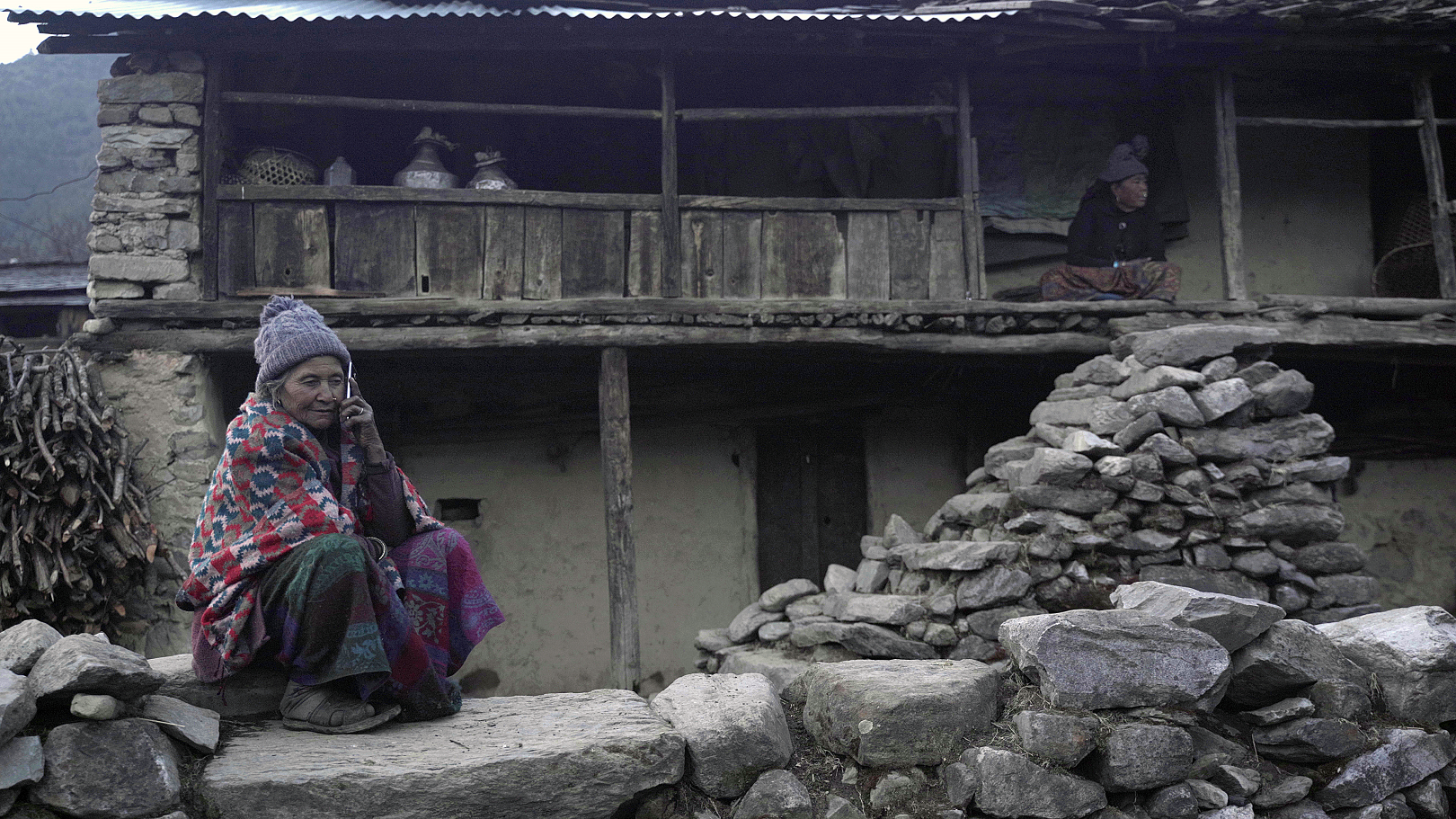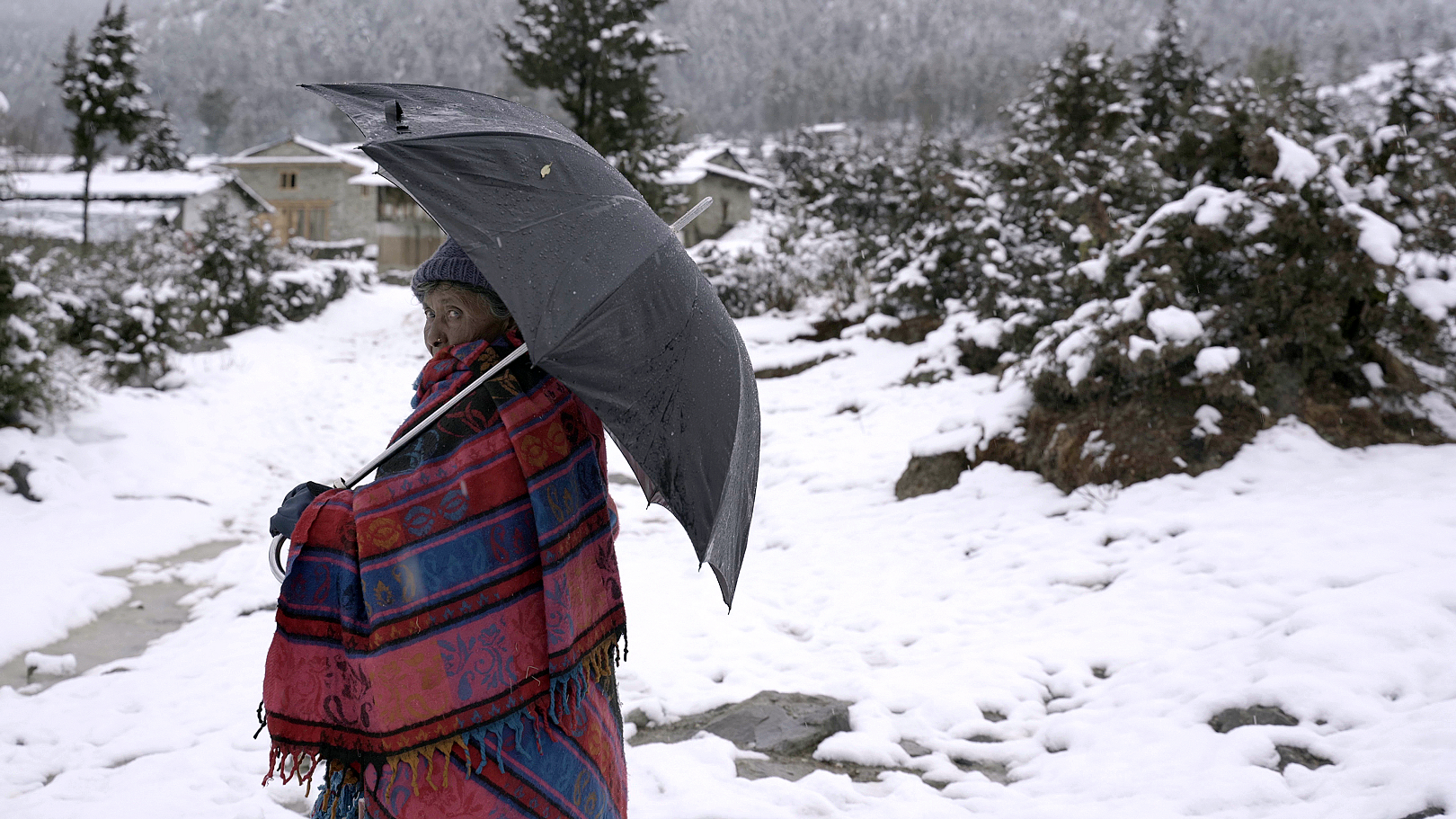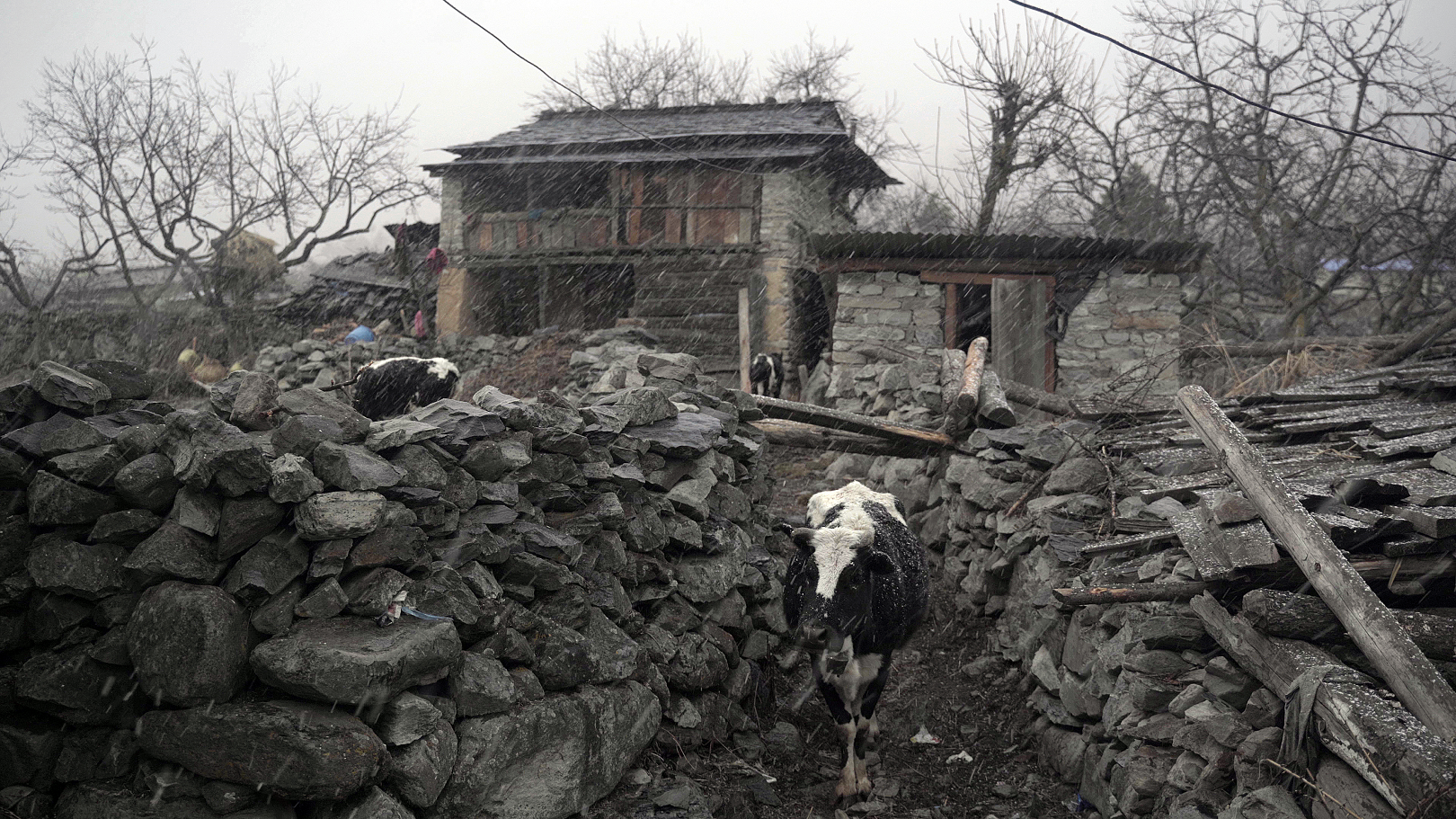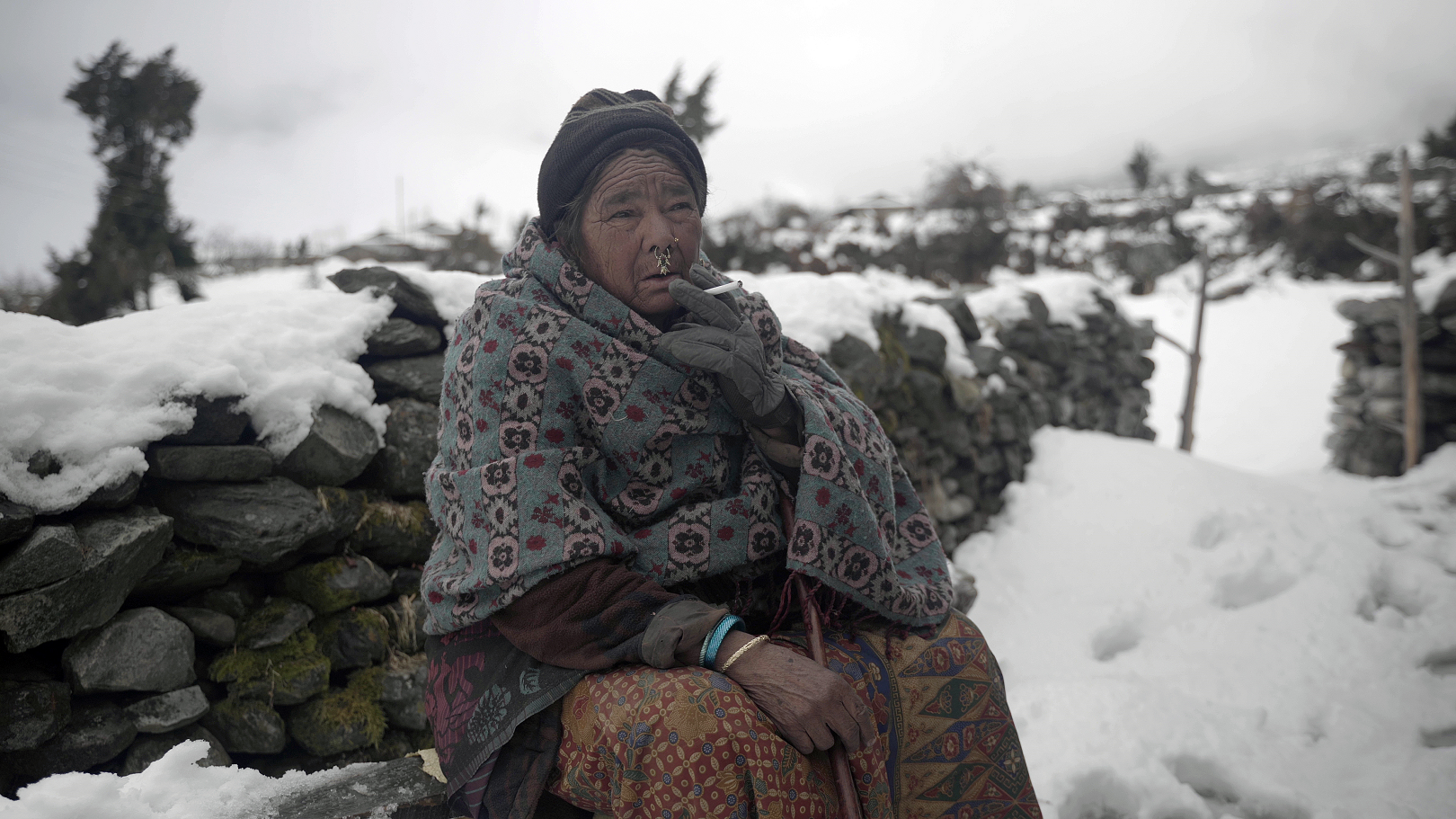Projects
No Winter Holidays
Sunir PANDEY, Rajan KATHET
- Nepal, Romania
- 75min
- DCP
- color
Synopsis
In the deeply snowed-in and empty valley of Dhor, only Thuli and Kalima remain. Their job is to guard 200 empty houses left behind by villagers who migrated south for winter. Twice a day, they must check for intrusion or theft. Thuli and Kalima are the same age, they have always lived in Dhor, and they even shared a husband. This is where similarities end. Thuli’s husband married Kalima without telling Thuli. They are closer now but once were rivals. Thuli was a folk singer and lives like an artist. She is a chain smoker, an alcoholic, and detests housework. Bad health limits her mobility. Kalima is dedicated to her house and animals. She listens to the radio to catch up with the outside world. On the phone with her daughter, she orders shoes, food, and vitamins. Kalima looks forward, while Thuli is stranded in the past. At the end of the day, the women meet and drink and pore over the problems of old age. They interpret each other's dreams and pray for good health or a painless death. Setting differences aside, they have to collaborate for duty. When they find some houses have been robbed, they fear the village committee will fine them and fire them from the job next winter.
Review
In Nepalese society, Thuli and Kalima are considered ‘low caste’ and ‘untouchables’, a group that is 13% of the population. Their lives have not been depicted in films and we want to contribute to filling this gap. In both our families, there are people just like Thuli and Kalima who refuse to leave the village. Across Nepal, there are millions who, for many reasons, choose to live in the village. Yet film and media always depict rural people as foolish and uneducated. We want to offer a more mature portrayal and convey deeper, human sides of rural life in our film. We found out about Thuli and Kalima from a news report in 2018. Immediately we realized their lives tell a many-layered story about Nepalese society. We then decided to spend the winter with them to make this film. Documentary culture in Nepal is limited to video news and organization profiles. We want to change this perception. Therefore we want to make a documentary film that is both cinematic and socially engaged.
Director
-

Sunir PANDEY
-
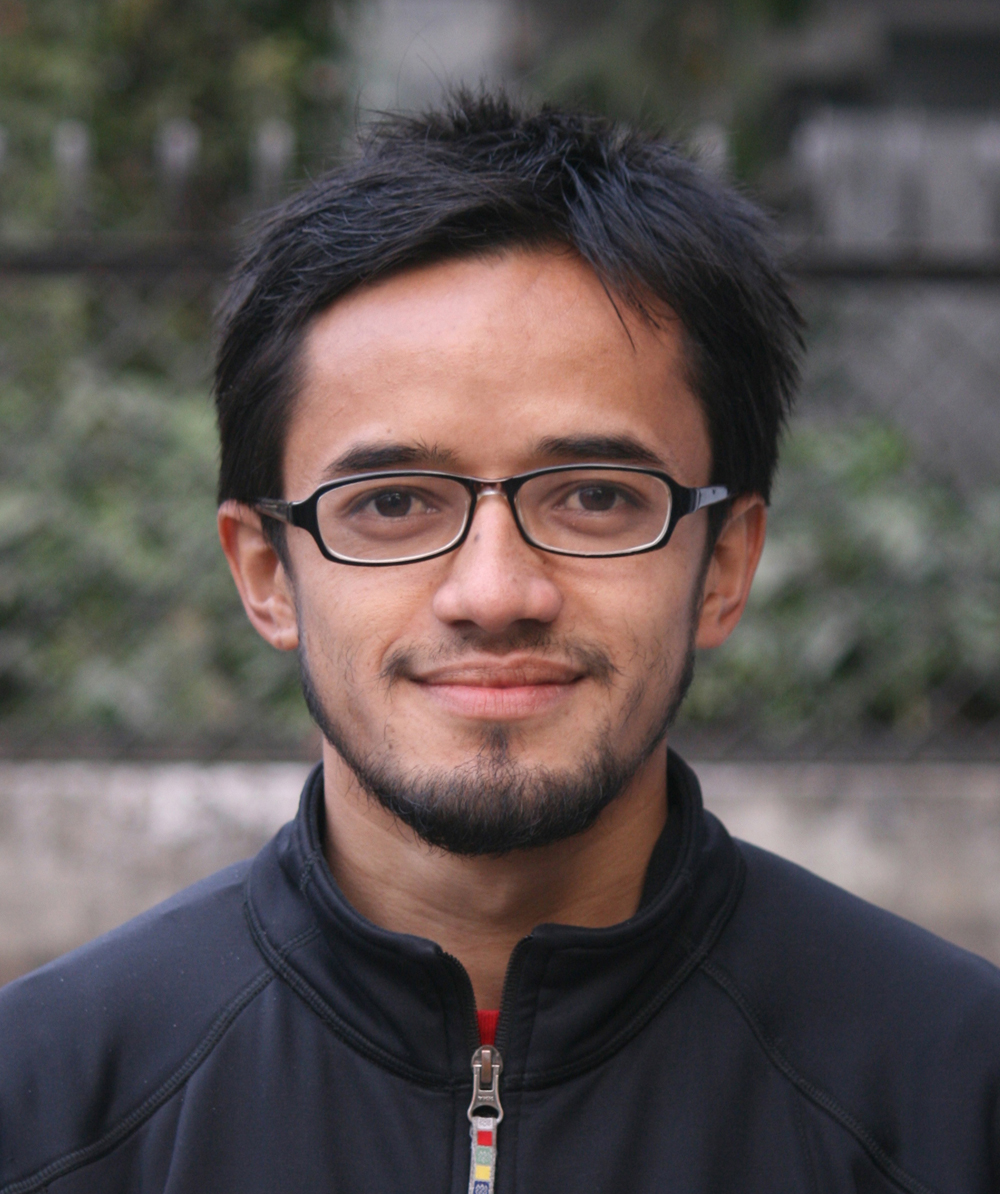
Rajan KATHET
Credit
- Producer수니르 판디 Sunir PANDEY
라잔 카셋 Rajan KATHET
